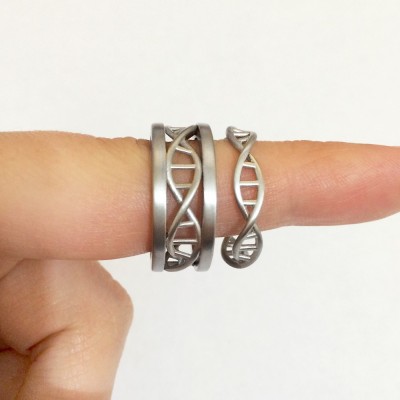
Genetic Evaluation and Counseling for Reproductive disorders – The best way forward!
Genetic Evaluation and Counseling for:
Recurrent pregnancy losses (RPL);
Bad obstetric history (BOH);
Recurrent abortions (RA)
The risk of sporadic miscarriage (6 – 12 weeks of gestation) in young women is 9% to 12%. The risk increases in older women (over 35 years) due to the markedly increased incidence of trisomic pregnancies and approaches 50% in women over 40 years of age. In women with an unexplained late pregnancy loss/ stillbirth, the risk of recurrence is 1 in 100 (1%) live births, but this increases to over 2 in 100 (>2%) live births in women with a history of fetal growth restriction. Information about the cause of the pregnancy loss may be important in counseling couples about their recurrence risk; common causes are chromosomal abnormalities, genetic mutations, advanced paternal or maternal age, thrombophilias, antiphospholipid syndrome, uterine anomalies, hormonal disorders, autoimmunity, sperm quality, and lifestyle issues.
Even today, at least 50% of RPL cases are considered to be idiopathic (unexplained origin), of which some are likely to have undetected gene defects (> 100 associated genes and chromosomal microdeletions). Single gene mutations can increase a couple’s risk of RPL; scientific literature states a 2 to 7 fold increased prevalence of RA among consanguineous (‘related’) couples compared to the background population.
The American Society for Reproductive Medicine (Committee opinion, ASRM, 2012) agrees that genetic causes of recurrent pregnancy losses should be evaluated and states that this ‘must not only be limited to cytogenetic analysis (karyotyping)’. ASRM believes that the clinicians must include ‘molecular studies which show promise in helping to elucidate mechanisms for RPL’. For a couple with RPL, once the common etiologies are ruled out, including normal parental karyotypes, a session with a genetic counselor can be very beneficial, since further molecular/ cytogenetic genetic tests can be carried out in the background of relevant family history, ultrasound findings, consanguinity status, maternal age, parental karyotypes etc. Genetic counseling helps the individuals in understanding the reasons for genetic testing, including the possible value of the information for the individual’s family.
We can at times avoid unnecessary or improperly positioned genetic testing by first scheduling a counseling session with a certified genetic counselor, who can help align the needs of the patient and the physician with the offerings in genetic diagnostics available out there today.

- Parental Cytogenetic/ Carrier status analysis – In the evaluation of RPL, parents should undergo peripheral blood karyotyping in order to detect any balanced structural chromosomal abnormalities. Balanced reciprocal translocations and Robertsonian translocations are observed in about 2%–5% of couples with recurrent miscarriage.
- Genetic counseling is important when a structural genetic variation is identified. The likelihood of a subsequent healthy live birth depends on the chromosome(s) involved and the type of rearrangement.
- If the karyotypes of the couple is normal (which is in the majority of cases), it is important to investigate for single-gene causes of RPL in them with the use of molecular genetic tests such as Whole Exome Sequencing (NGS). This can be done for the couple along with the POC/ abortus sample (sample to be always collected in sterile saline for genetic studies) for more accurate molecular diagnosis and to enable the prediction of recurrence risk, possible treatment options and exploring alternative reproductive options.
- Genetic testing in the female partner for inherited causes of recurrent thrombosis (thrombophilia) as a cause of recurrent abortions must be investigated. This includes, Factor V Leiden, Prothrombin (Factor II) and MTHFR gene defects. If identified, appropriate heparin therapy could help rectify the problem in the next pregnancy.
Embryonic cytogenetic/ molecular genetic testing – Genetic testing of products of conception (POC) is recommended by several reproductive health organizations. The American College of Obstetrics and Gynecology (ACOG) recommends that evaluation after an intra-uterine fetal demise/ still birth must include examination of the stillborn fetus, along with genetic testing in all cases (after parental consent is taken). There is a very high frequency of sporadic karyotypic abnormalities in POC (abortus material) while the incidence of karyotypic abnormalities in the parents is usually low. The knowledge that the repeated pregnancy loss is secondary to a sporadic genetic abnormality may provide parents with reassurance that there was nothing that they did or did not do that contributed to the loss.
If the POC karyotypes is normal, it is recommended to use the stored fetal DNA to analyse submicrospcopic chromosomal microdeletions (by Fetal Chromosomal CGH microarray). CMA has several advantages over karyotyping, including improved resolution (detection of smaller chromosomal variants that are undetectable using standard karyotyping) and therefore can result in potentially higher rates of detection of pathogenic chromosomal abnormalities. Based on the family and medical history, specific molecular genetic causes may be investigated in the abortus/ fetal DNA sample (by Fetal Whole Exome analysis).

When one of the partners has a structural chromosomal abnormality or if the couple are carriers for a single-gene disorder (example, Alpha thalassemia, metabolic genetic disorders), alternative reproductive options for the couple may be appropriately recommended by the Genetic Counselor, such as;
- Assisted reproductive techniques (ART) such as Intra-uterine fertilization (IUI) with their OWN gametes – to increase the chances of successful pregnancy. Once, a natural or IUI pregnancy is confirmed, the couple should be offered invasive prenatal diagnosis (amniocentesis, or chorionic villus sampling) to help in early detection of the specific genetic abnormality in the offspring (for which the parents are carriers, Eg: Down’s syndrome, chromosomal microdeletion syndromes such as Di George syndrome, alpha thalassemia etc..).
- ART such as in-vitro fertilization (IVF) or IUI with either DONOR sperm/ oocyte/ both (depending on the identified genetic cause of RPL in each couple) – to avoid passing on of the harmful genome (Eg: parent who is carrier of balanced translocation/ carrier of genetic disease) and help in achieving successful pregnancy. Once the pregnancy is successful, non-invasive prenatal testing (NIPT) is strongly recommended at 11-12 weeks gestation to rule out the common chromosomal aneuploidies in this precious pregnancy.
- Pre-implantation genetic diagnosis (PGD) for specific chromosomal/ single-gene defect to help choose a genetically-healthy embryo (unaffected) for subsequent IVF procedure. This can be only done in specialized infertility clinics and requires the expertise of a geneticist and experienced embryologist. PGD is commonly done for balanced chromosomal translocation carriers, or a couple who are carriers of a specific autosomal recessive genetic disorder such as Alpha/ Beta Thalassemia, metabolic genetic disease (where in, the fetus is at 25% risk of disease) and is mainly offered to couples who do not want the option of termination of pregnancy following an unfavorable invasive prenatal testing report.
- In cases of advanced paternal age (over 40 years), the risk of fetal skeletal defects such as Achondroplasia (FGFR3 gene) increases considerably, and can be detected early using molecular genetic testing at 12 – 16 weeks gestation using invasive procedures (by Clinical Exome Analysis). Routine/ high resolution ultrasound can only detect some of these genetic skeletal defects and that too at an advanced gestation of > 28 weeks, which is too late for the couple.
For any assistance, queries, referrals for certified Genetic Counselors and genetic testing requirements, feel free to contact Mapmygenome.
Address: Mapmygenome India Lt., Royal Demeure, HUDA Techno Enclave, Plot No.12/2, Sector-1, Madhapur, Hyderabad-500 081, India.
Contact: 1800 102 4595 (toll-free) or 040-66986700
Email: info@mapmygenome.in






